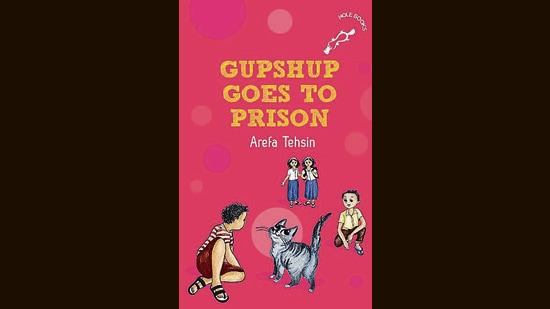HT reviewer Chintan Girish Modi picks his favourite read of 2022
My interest in restorative justice, prison reform, and compassionate policy initiatives led me to Arefa Tehsin’s book Gupshup Goes to Prison
My interest in restorative justice, prison reform, and compassionate policy initiatives led me to Arefa Tehsin’s book Gupshup Goes to Prison. Set in Rajasthan, the book opens with Khalid’s cat Gupshup sprinting down a street past a green traffic light and leaping up a forbidden wall to land right into the open prison of Sanganer. Khalid, a boy who is afraid of being reprimanded by his mother, runs after the cat hoping to bring it back. His mother, who heads a Sanganeri print textile company, has filled Khalid’s head with stereotypes about prisoners.

In the process of looking for his cat, Khalid has an opportunity to question the beliefs he has internalized. The author captures his state of mind when she writes, “This was a weird prison. Khalid hadn’t come across any savages – yet.” Khalid also speaks for many of us who have not seen the inside of a prison but have a vivid imagination of what it must be like based on films. The author provides rich insights into an alternative system of dealing with crime and punishment; a system that believes in the capacity of people to reflect on their actions and make amends. It does not cut them off from society. It gives them a chance to earn their livelihood.

Khalid meets twin sisters – one named Che, and the other named Guevara. Their parents are prison inmates. Their father sells flowers outside a Jain temple, and their mother is a student of sociology. Che and Guevara offer to help Khalid find Gupshup if he agrees to complete their mathematics homework for a whole week. The deal is made. They take Khalid to meet Kodi, a wannabe detective nicknamed The Feluda of Sanganer. Che and Guevara are resourceful. They make Kodi think that they are doing him a favour by bringing them the case of the missing cat, and this will help him hone his skills. In return, they want Kodi to complete their biology project.
And then there is the mysterious cat collector who lives in the open prison. Filled with humour and suspense, this book educates without being preachy. Most importantly, it offers us a glorious vision of what can transpire when we think about the limits of punitive action and shame as discipline. Cat lovers will especially enjoy the illustrations by Shubhangi Chetan.
Chintan Girish Modi is a freelance writer, journalist and book reviewer.





